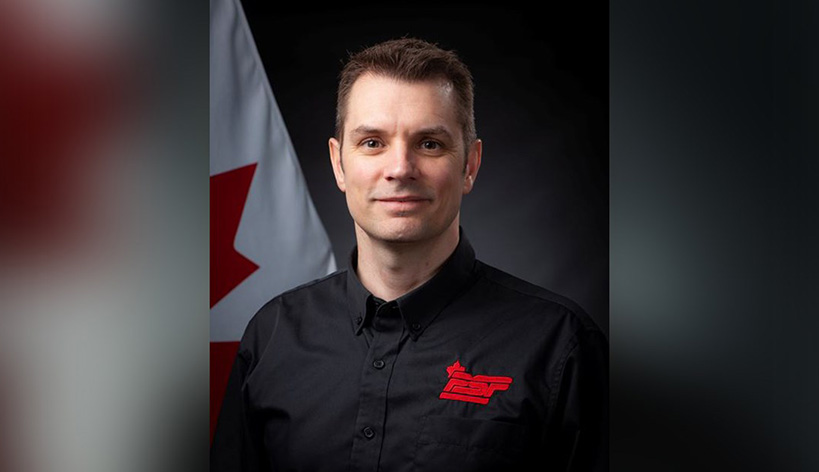I’m the Senior Manager with PSP for the Montreal Region. I’ve been with CFMWS for 24 years. I started as an intern at Saint-Jean, as a third-year kinesiology student at Sherbrooke University. When I graduated, I got a position as a contract fitness instructor at Valcartier, and I’ve done all positions I can to get to this position, including a lot of deployments.
Give an overview of your Deployment Support experience
I’ve deployed multiple times with the Deployment Support Team. I’ve done roles overseas to support military operations in Bosnia, Afghanistan and Latvia.
Why did you decide to deploy as a civilian with the Deployment Support Team?
I always wanted to travel. I came from a family with modest means. It was always in my mind to experience the world and to get better with English. I knew it would be important to evolve in my career.
I thought it was win-win to experience something new and see the world within the support of a team. When the new base opened in Afghanistan, I applied to go as a Fitness and Recreation Coordinator, but they offered me the Fitness, Sports and Recreation Supervisor in Bosnia instead.
What are some of the most rewarding aspects of deploying as a civilian?
Seeing the world and feeling connected to the purpose of what we’re doing. We’re so fortunate here with all we have. For me, it puts my values in perspective by connecting with people who have more difficulties, yet seeing how happy they are, and understanding how to live with less.
For me, it’s not just professional, but personal development -- learning languages, learning about the world and knowing who I am. When you put yourself in situations where you’re uncomfortable, this is where you learn the most about yourself.
Describe some of the challenges you’ve faced while deployed?
On my first deployment to Bosnia, it seemed that the military members were surprised we were there. So initially, I questioned whether I was meant to be there. But at the end of the tour, after sharing time and meals together 24/7, the members said they understood and appreciated why our team was there, and that we were essential to morale.
In Afghanistan, we were in an active war zone, so there were air raid sirens and we had to go into bunkers, people died. But it was never a showstopper. I was very aware of my purpose and the importance of what I was doing.
How is it different deploying earlier in your career versus now?
I always try to have that feeling that it’s the first time -- the joy, the discovery. It’s such an intense experience to be so close to people for six months though you may feel down when you get back. I’ve learned to protect myself and find more balance and put eggs in different baskets. I have family at home now, so I have to be present wherever I am.
What would you say to colleagues who are considering applying for Deployment Support?
It’s one of the most valuable experiences you’ll have. It will make you grow professionally and personally. You’re going to learn about yourself, culture, the profession you’re doing. Even if you have the same position at home, you’ll go further on deployment because you have more responsibilities, you’re closer to our members, you must be creative and push harder. But it’s worth it. Just changing teams and having six months to achieve something with others while everyone is out of their comfort zone will propel you far. And at the end, you will all cry because of how close you’ve become and what you’ve accomplished together.


